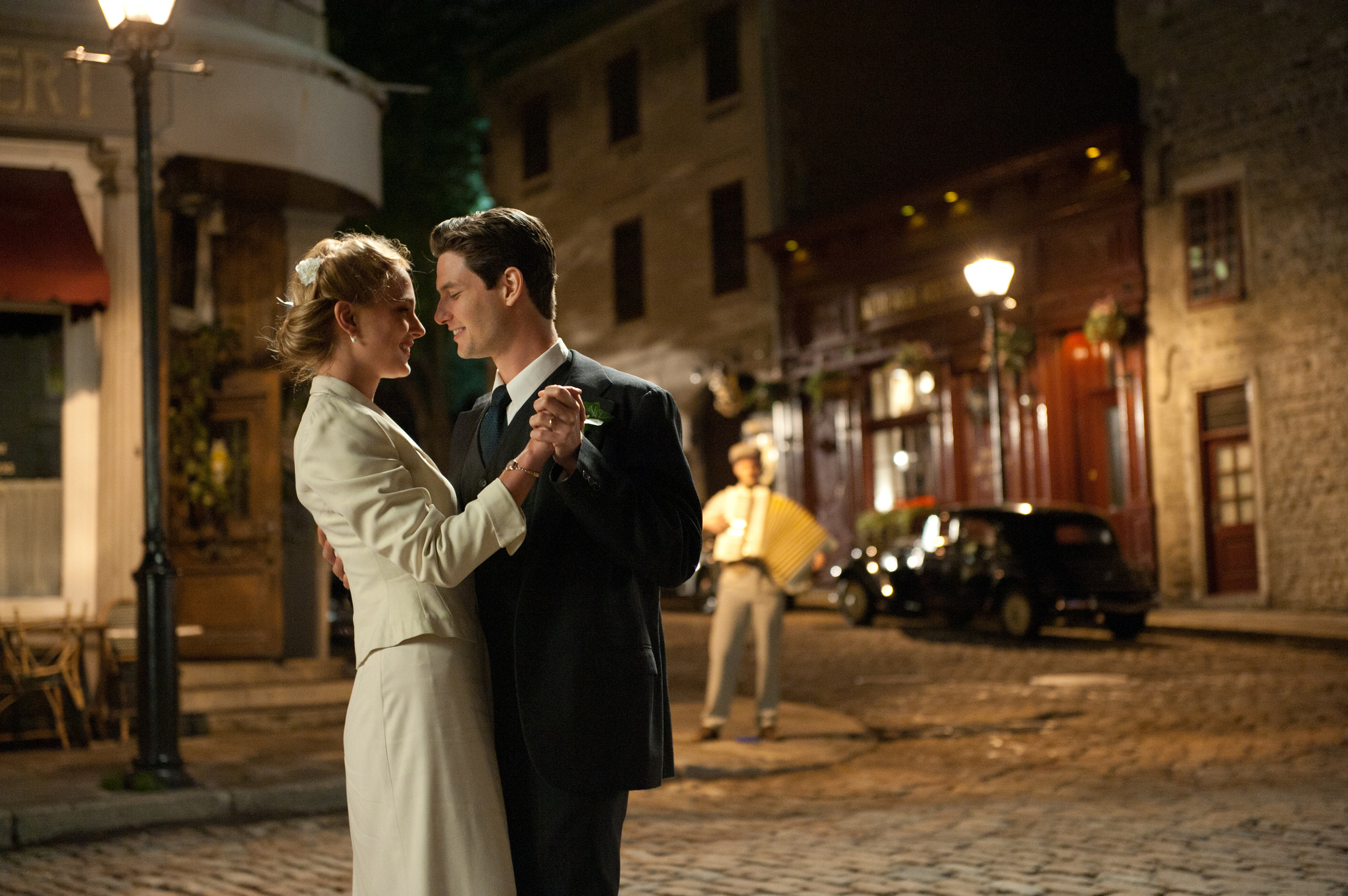Well-meaning and solidly acted, The Words doesn’t quite work as a movie, but it’s a sometimes thoughtful and entertaining picture about the relationship between art and life, moral lapses, betrayals and how we live with them. It’s not a compelling drama, but it’s well directed, handsomely shot and briskly paced—the picture certainly looks and feels polished.
Written and directed by longtime collaborators Brian Klugman and Lee Sternthal, The Words opens with a public reading from successful author Clay Hammond (Dennis Quaid), author of a new novel entitled The Words, and this storytelling device frames the story within a story within a story. Narrating to an audience (and on the film’s soundtrack), he spins the story of Rory Jansen (Bradley Cooper), a frustrated would-be author whose “internal” novels are unpublishable, and who is creatively bereft, unable to come up with any good ideas.
Rory lives in a Brooklyn studio apartment with supportive wife Dora (Zoe Saldana, continuing to deliver finely etched emotions with each role), making ends meet until one day discovering an old leather briefcase in an antique shop. Hidden inside is a decades old, dog-eared manuscript, which just happens to be a brilliant, tragic wartime love story.
Rory reluctantly appropriates the story as his own which becomes a runaway bestseller. Suddenly, he’s the toast of Manhattan and feels worthy in his wife’s admiring eyes—until the manuscript’s real author, played with great command by Jeremy Irons, turns up to inform Rory of his personal and professional indiscretion.
This leads to a crisis of conscience that reminded me of Woody Allen’s great crime and self-punishment tale Crimes and Misdemeanors, though this picture isn’t in that league. Irons explains his own story of postwar love and loss, the basis for the manuscript, giving us a fourth writer (Ben Barnes) in luscious flashbacks, rendered as superior period pieces sequences of unabashed romance and heartbreaking sadness.
The central quagmire here—the re-emergence of the old man and its effect on Jansen, and his forced evaluation of morality and his own process of self-examination—is the crux of this picture, and also bears heavily on Quaid’s character, forced by a mysterious beauty (Olivia Wilde) to confront his own possible moral culpability, which Quaid perfectly conveys in a mere expression or two. In one of the dangling ends of the screenplay, Wilde’s character is never explained. Who is she? Why is she so concerned with Quaid’s book?
The principal problem with The Words is that none of the stories digs very deeply; the movie is built on intriguing ideas, but it doesn’t give any of its characters enough screen time to dramatize them; the interlocking stories are wholly dependent upon each other to come to life, and on their own, none contain enough depth or complexity to stand. The Words is really a movie about plot, not people, and as slickly constructed as it screenplay is, it feels undernourished, a movie about writers that couldn’t feel more written.
Yet Cooper, in a refreshing turnabout from his wild comedies like The Hangover and Hit-and-Run, digs into Rory with believable self-doubt and desire in an inward performance delivered in emotions through his crystal blue eyes. It’s an effective performance topped only by Irons, who blows everyone off the screen with a late scene about pain and regret.
The Words goes down easily, an enjoyable exercise in screenwriting that is watchable if not memorable, and Antonio Calvache’s lensing is gorgeous from first frame to last.
2 1/2 stars.



